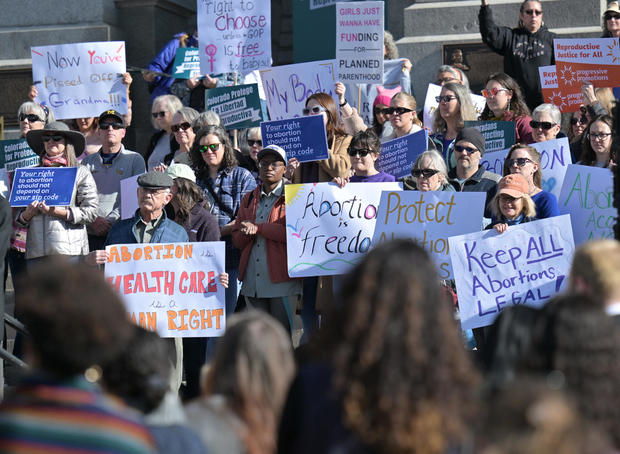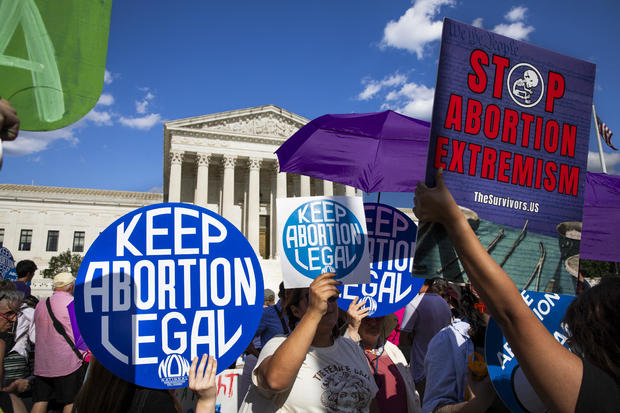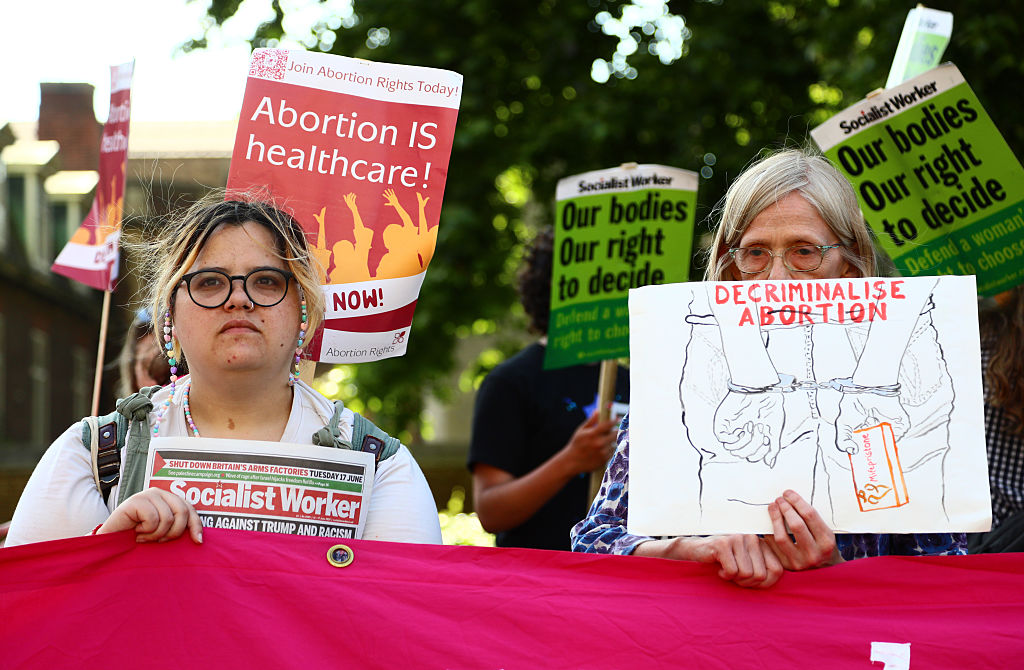Abortion access on the ballot in 2024
While the Supreme Court's 2022 decision to overturn Roe v. Wade eliminated the national right to abortion, leading to stricter abortion laws in more than 20 states, the fight for abortion access persists at the state level. This year, abortion is on the ballot in 10 states, signaling that the battle over abortion is far from over.
Of the six states that have already voted on abortion access, all have moved to protect abortion rights, including California, Kansas, Kentucky, Michigan, Ohio and Vermont.
States with abortion on the ballot
Arizona
Currently, abortion is legal in Arizona within 15 weeks of pregnancy. Abortion access proponents collected signatures to put a constitutional amendment on the ballot that would ensure the right to an abortion until viability, which is typically around 24 weeks. The initiative far surpassed the required amount of signatures to put the question before voters, the secretary of state announced in August.
Colorado
Abortion is legal in Colorado and a state constitutional amendment would prevent the government from taking away the right or disallowing health insurance coverage for abortions. To qualify for the ballot, organizers were required to get 124,238 signatures, as well as 2% of the total registered voters in each of the 35 Colorado state senate districts. The secretary of state announced in May that the conditions had been met.
Florida
Florida used to allow abortions up to 24 weeks of pregnancy, but it passed a 15-week ban in 2022, and last year, Gov. Ron DeSantis signed an even more restrictive six-week ban into law. The 15-week ban was challenged in the courts by Planned Parenthood, which argued that the state's protections of the right to privacy included abortion. On April 1, 2024, the Florida Supreme Court, in keeping with the U.S. Supreme Court's 2022 decision rejecting the privacy argument and striking down Roe, upheld the 15-week ban and ruled that the six-week ban would go into effect within 30 days.
On the same day, the state supreme court allowed a proposed constitutional amendment that would prohibit abortion restrictions until fetal viability to appear before voters in November. It will require a supermajority of 60% support to pass.
Maryland
Abortion is legal in Maryland, but voters will have the opportunity to enshrine the law in the state constitution in November. Maryland's existing law, enacted in 1991, safeguarded abortion rights in case the U.S. Supreme Court restricted abortion. In a 1992 referendum, 62% of voters affirmed their support for this law. Maryland lawmakers in the House voted 98 to 38 last March to amend the state constitution to protect the right to abortion, and the bill has also cleared the state Senate. The amendment will be on the ballot for voters in November, requiring a simple majority for approval.
Missouri
Abortion rights supporters want to amend the state constitution to allow abortion in Missouri, where the procedure is currently prohibited, unless it's necessary to protect the health or life of the woman. Roughly 170,000 signatures from six out of eight congressional districts were required to get the measure on the ballot in November. In August, the secretary of state announced that the petition had enough support to appear on the ballot, presenting Missouri voters with an opportunity to amend the constitution to establish a right to "make and carry out decisions" about reproductive health care, including abortion and contraceptives, while removing the state's current abortion restrictions.
Montana
In Montana, abortion is legal until fetal viability. Abortion rights supporters proposed a constitutional amendment to protect abortion access that the Republican Montana attorney general attempted to block. But in August, the secretary of state certified the constitutional initiative, allowing it to go before voters in November. Should the measure be approved, the state would be prohibited from restricting abortion before fetal viability.
Nebraska
Nebraska has a 12-week abortion ban that was enacted in 2023. Abortion access advocates have been working to embed abortion rights in the state constitution with a proposed ballot initiative that would establish the right to an abortion until viability and ensure legal protection for maternal health and life, while abortion opponents have been working to embed abortion restrictions in the state's constitution in line with the state's current regulations. In August, the secretary of state announced that the two dueling ballot initiatives had garnered enough signatures to appear on the ballot — one that would recognize a constitutional right to abortion until viability and another that would ban it in the second and third trimester, except for in medical emergencies or cases of sexual assault or incest.
Nevada
Abortion is legal in Nevada within 24 weeks of pregnancy. Last September, an abortion rights coalition made up of Planned Parenthood, Reproductive Freedom for All Nevada and the American Civil Liberties Union of Nevada filed a petition with the secretary of state's office to propose a ballot question directed at embedding abortion protections in the state constitution until fetal viability. The measure garnered enough signatures to appear on the ballot, the secretary of state announced in June. If approved by a simple majority, abortion rights will return for consideration on the 2026 ballot, since secondary passage is necessary to amend the state constitution.
New York
In New York, abortion is permitted within 24 weeks of pregnancy. Beyond this point, abortion is allowed solely in cases where the fetus is incompatible with life or when it's deemed necessary to safeguard the mother's life or health. In November, voters will be presented with a state Equal Rights Amendment seeking to enshrine various rights, such as abortion and LGBTQ rights, into the state constitution. The amendment will be approved if it's supported by a simple majority. The Democratic-majority Legislature approved the amendment in two consecutive state legislative sessions, first in July 2022 and then again in January 2023, enabling it to undergo a statewide vote.
South Dakota
In South Dakota, abortion is illegal, classified as a Class 6 felony with penalties of up to two years in prison and a $4,000 fine for providers who perform an abortion that is not life-saving for the mother. The law allows abortion only when deemed necessary to save the mother's life, with no exceptions for rape or incest. South Dakotans who support abortion access want to amend the state constitution to allow abortions during the first trimester, which ends at about 12 weeks, and also allow second-trimester abortions if necessary for the health of the mother. In May, the secretary of state announced that a petition for the initiative had been validated after receiving enough signatures to appear on the ballot.
Where do the presidential candidates stand on this issue?
Donald Trump
Former president Donald Trump often boasts about his role in ending the federal right to an abortion, having appointed three Former president Donald Trump often boasts about his role in ending the federal right to an abortion, having appointed three Supreme Court justices who ultimately voted with the majority decision to return abortion law to the states. But he has repeatedly said the issue should now be left up to the states, saying he wouldn't sign a federal abortion ban should he return to the White House.
Kamala Harris
As Vice President, Kamala Harris has taken on a role as the White House's leading voice on reproductive rights. And as the Democrats' presidential nominee, she's continued to take an aggressive stance on abortion, making the effort to restore federal protections for abortion a cornerstone of her campaign.





